Personalized content strategies are game-changers for healthcare practices. By understanding your audience through patient personas, you can create tailored messaging that truly resonates. Utilizing data analytics helps you pinpoint what your patients want, while engaging emails and social media interactions foster meaningful connections. Don't forget educational resources—they empower your patients and build trust. The more you focus on personalized content, the stronger your relationship with patients will become. Let's explore how to maximize these strategies effectively.
Key Takeaways
- Develop patient personas to understand diverse patient needs, motivations, and preferences for tailored messaging.
- Use data analytics to create content that resonates with specific demographics and uncovers engaging topics.
- Implement targeted email marketing campaigns with personalized messages, improving engagement and perceived value.
- Leverage social media to foster dynamic interactions, share success stories, and respond promptly to patient feedback.
- Create educational resources addressing common patient questions, using relatable language to enhance understanding and trust.
Understanding Your Audience: The Importance of Patient Personas
 .
.
When it comes to crafting effective content strategies for your healthcare practice, understanding your audience is paramount—after all, you’re not just communicating with faceless patients, but individuals with unique needs and concerns. Developing patient personas is a powerful way to achieve this. By creating detailed profiles for different segments of your audience, you can gain insights into their motivations, preferences, and challenges. Consider factors like age, health conditions, and communication styles. This knowledge allows you to tailor your messaging, ensuring it resonates with each individual. When you speak directly to their needs, you're not just sharing information; you’re building trust. Ultimately, the better you understand your patients, the more effectively you’ll engage them, enhancing their overall experience with your practice. Additionally, understanding patient demographics enhances the meaningfulness of care and communication.
Utilizing Data Analytics for Tailored Content Creation
Understanding your audience through patient personas lays the groundwork for more sophisticated strategies, and that's where data analytics comes into play. By analyzing data from various sources, you can uncover valuable insights into your patients' behaviors, preferences, and needs. This information allows you to create content that resonates deeply with them, rather than using a one-size-fits-all approach. You’ll discover which topics engage your audience most and how they prefer to consume information. For instance, you might find that younger patients prefer video content, while older ones lean toward articles. Armed with this knowledge, you can tailor your messaging, ensuring it’s not just relevant but also impactful. Ultimately, data analytics empowers you to connect meaningfully with your patients, enhancing their experience. Additionally, tracking Patient Engagement Metrics helps you refine your approach based on how well your content resonates with different segments of your audience.
Engaging Patients Through Email Marketing Campaigns
 .
.
Email marketing campaigns can be a powerful tool for healthcare practices, especially when you want to foster deeper connections with your patients. By sending targeted emails, you can share valuable health tips, appointment reminders, or information about new services tailored to their needs. Personalizing your messages makes patients feel valued and more likely to engage with your practice. Consider segmenting your audience based on demographics or health interests, so your content resonates on a personal level. Additionally, using clear and compelling subject lines can boost open rates, ensuring your messages reach their inboxes. Regularly analyzing campaign performance will help you refine your strategies, making each email more effective in building lasting patient relationships. Moreover, positive perceptions of your practice can significantly enhance patient engagement and adherence to care recommendations.
Leveraging Social Media for Personalized Patient Interactions
Social media has become a dynamic platform for healthcare practices to connect with patients on a more personal level. By utilizing channels like Facebook, Instagram, and Twitter, you can create tailored interactions that resonate with your audience. Share patient success stories, highlight community events, and offer behind-the-scenes glimpses of your practice. These authentic touches foster a sense of belonging and trust. Responding promptly to comments and messages shows you value patient feedback, enhancing their experience. You can also use polls and questions to engage your audience, making them feel heard and involved in their care journey. Ultimately, social media isn’t just about broadcasting information; it’s about building lasting relationships that empower patients and encourage loyalty to your practice. Additionally, sharing educational content reinforces emotional connections vital for effective healthcare branding.
Creating Educational Resources That Address Patient Needs
 .
.
While you might think of healthcare primarily as a service, it’s essential to remember that education plays a pivotal role in patient engagement. By creating educational resources tailored to patient needs, you empower individuals to make informed decisions about their health. Start by identifying common questions or concerns your patients have, then develop clear, concise materials—like brochures, videos, or blog posts—that address those issues directly. Use relatable language and real-life examples to make complex topics accessible. Consider hosting workshops or webinars, fostering a community atmosphere where patients feel comfortable asking questions. By prioritizing education, you not only enhance patient understanding but also build trust, ultimately leading to better health outcomes and stronger relationships within your practice. Additionally, ensuring that your materials reflect expertise, innovation, and compassion reinforces the trust patients have in your brand.
Measuring the Impact of Personalized Content on Patient Engagement
When you invest time in creating personalized content for your healthcare practice, it’s essential to understand how that content impacts patient engagement. Start by tracking key metrics like open rates, click-through rates, and social shares. These indicators reveal how well your content resonates with your audience. Don't forget to solicit feedback directly from patients; their insights can guide future content strategies. Consider conducting surveys to gauge their satisfaction and engagement levels. Additionally, monitor appointment bookings and follow-up visits to see if personalized content drives real-world actions. By analyzing this data, you can refine your approach, ensuring your content not only informs but also inspires patients to take an active role in their healthcare journey. Incorporating patient testimonials can further enhance credibility and relatability, making your content more impactful.
Frequently Asked Questions
How Can I Start Creating Patient Personas for My Practice?
To start creating patient personas, gather data through surveys and interviews, identify common characteristics, and segment your audience. Then, develop detailed profiles that reflect their needs, preferences, and behaviors to tailor your approach effectively.
What Tools Are Best for Data Analytics in Healthcare Marketing?
You’ll find tools like Google Analytics, Tableau, and HubSpot invaluable for healthcare marketing data analytics. These platforms offer insights into patient behavior, helping you tailor strategies that effectively engage and convert your target audience.
How Often Should I Update My Email Marketing Content?
You should update your email marketing content regularly, ideally every month. This keeps your audience engaged and informed. However, if you have significant news or changes, don't hesitate to send updates more frequently.
What Types of Social Media Content Resonate Most With Patients?
Engaging videos, patient testimonials, and informative infographics resonate most with patients. Share health tips, behind-the-scenes glimpses, and interactive polls to foster community. Remember, authentic content builds trust and keeps your audience connected and informed.
How Can I Assess the Effectiveness of My Educational Resources?
You can assess your educational resources' effectiveness by gathering patient feedback, tracking engagement metrics, and analyzing changes in patient knowledge or behavior. Regularly reviewing these factors helps you refine your content and improve patient outcomes.




